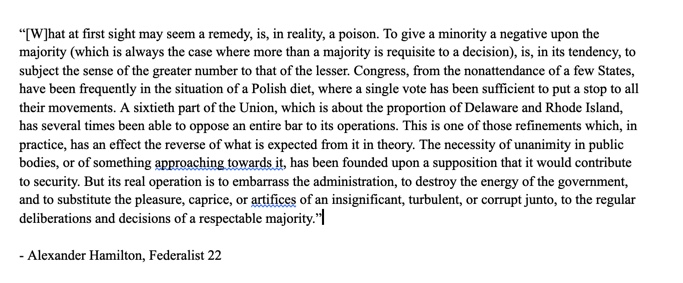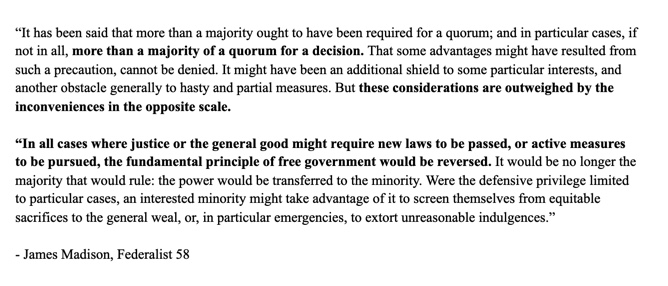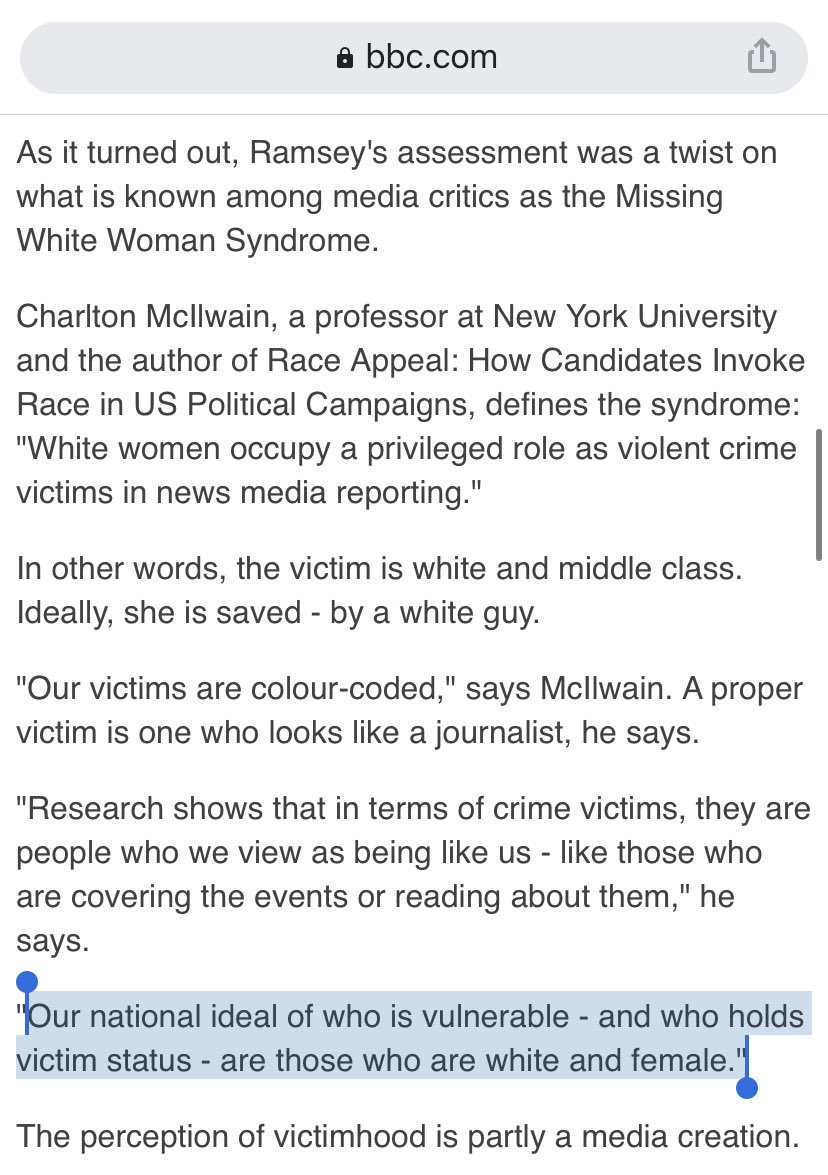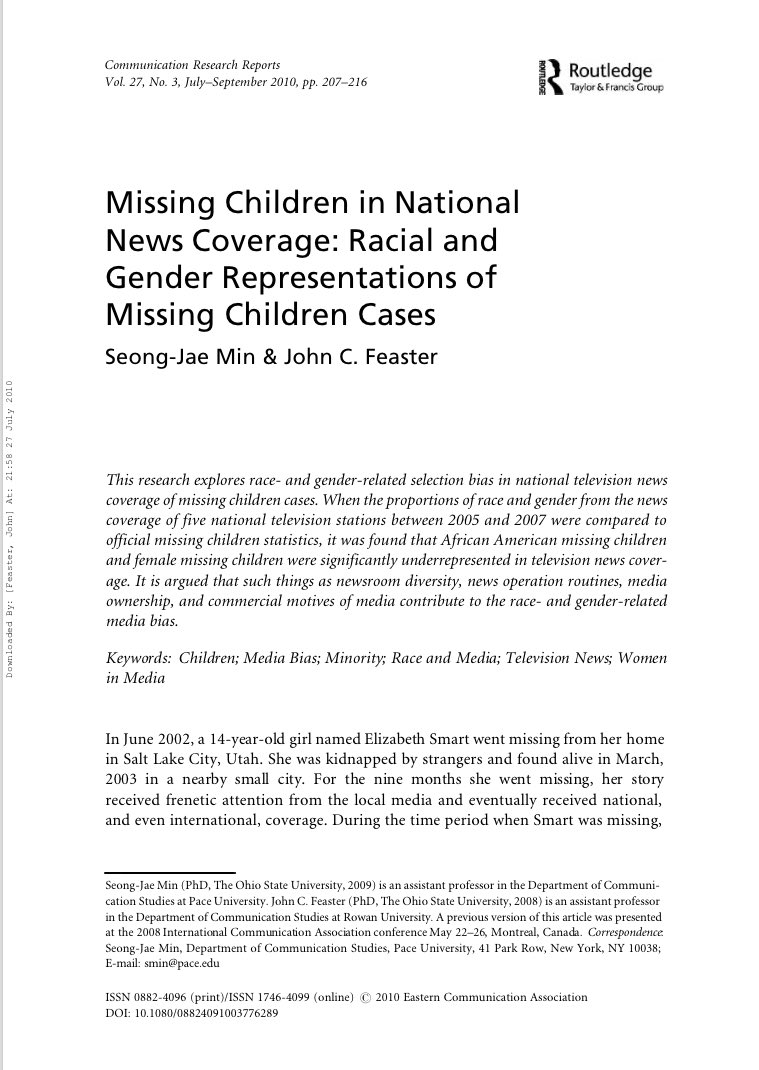
A word about @SenAngusKing's comment that "the 60 vote majority requires some level of consensus," which reflect a common myth about the Senate. The Framers designed the Senate to promote compromise, but the filibuster was not a part of that design. mainebeacon.com/sen-king-seen-…
The Framers designed the Senate as a venue for compromise but were extremely clear that it should be, and remain majority-rule. They had seen how supermajority thresholds led to gridlock in the Articles of Confederation and explicitly warned against them - over and over.
The Framers were familiar with the idea that supermajority thresholds promote compromise but had seen that in practice, they provided an irresistible temptation for the minority to "embarrass" the majority. They warned us about what would happen. Here's Hamilton in Federalist 22. 

The Senate the Framers designed was strictly majority rule except for a handful of exceptions stipulated in the Constitution (impeachment, etc). It remained so for more than a century. Through the Golden Age for example, the Senate was a majority-rule body. This is simply a fact.
The filibuster began to emerge in the mid-19th century. Into the 20th it remained a tool capable of delaying bills but rarely blocking them (ie, Mr. Smith's talking filibuster). The supermajority threshold emerged in 1917 but for decades was usually only applied to civil rights.
After 1964, the filibuster losts its segregationist taint and began being applied to all issues. For a few decades, it may have promoted compromise somewhat, but this was a unique period: use of the filibuster was rising but partisan polarization was still relatively low.
To pause on this point, this period (the Mansfield/Byrd era) was formative for many of the filibuster's defenders today. But it was anomalous. Higher use of the filibuster and low polarization existed for a time, but those two conditions are unlikely to ever exist together again.
Today the filibuster operates as Hamilton described. Instead of a force for compromise, it empowers the minority to "embarrass" the majority, exactly as he predicted. In a polarized world, the political rewards for blocking the majority far outweigh those for working together.
This is the point for folks like @SenAngusKing to internalize: the Framers wanted the Senate to be a venue for compromise AND they wanted it to be majority-rule. Madison called majority rule "the republican principle." Issues were to be debated at length, then voted up or down.
Madison stated repeatedly that consensus was great and all but when it couldn't be achieved, the majority should rule. He weighed the arguments for supermajorities but came down firmly for majority rule. Conservatives like to cherrypick him but here he is in Federalist 58. Clear! 

The filibuster is not a tool for consensus. It was forged by white supremacists who saw their power threatened by the march of progress & democracy. They used it to block civil rights and today it continues to give a minority of white conservatives the power to impose their will.
• • •
Missing some Tweet in this thread? You can try to
force a refresh





